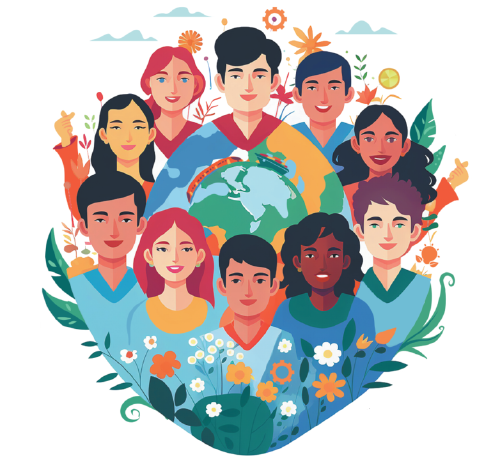Editor's note:
The UN Sustainable Development Goals are a global call to action to eradicate poverty, protect the environment, fight climate change, and ensure that people can enjoy peace and prosperity. China will continue to work with all parties to advance the implementation of the UN 2030 Agenda for Sustainable Development and bring benefits to people of all countries. By invitation, Xiao Qian shares her view on the issue with China Daily.

MA XUEJING/CHINA DAILY
The 78th session of the United Nations General Assembly marks a crucial milestone in the journey toward achieving the 2030 Agenda and the urgent need to put the 17 Sustainable Development Goals back on track. From Sept 19 to 23, world leaders will gather to engage in the annual high-level General Debate under the theme "Rebuilding trust and reigniting global solidarity: Accelerating action on the 2030 Agenda and its Sustainable Development Goals towards peace, prosperity, progress and sustainability for all."
A UN report in July said that halfway to the deadline for the 2030 Agenda for Sustainable Development, only 15 percent of the Sustainable Development Goals' targets are on track, 48 percent moderately or severely off track, and 37 percent in stagnation or decline, according to a preliminary assessment of about 140 targets for which data were available.

The 70th session of the UN General Assembly adopted the 2030 Agenda in 2015. So, why are most of the SDGs off track?
First, conflicts have increased around the world. In June, the UN estimated that war, persecution, violence and human rights abuses have displaced more than 110 million people and created 35.3 million refugees.
Second, the intensifying climate crisis has exacerbated the uneven development of countries. The world has just emerged from the hottest summer on record, with UN Secretary-General Antonio Guterres warning earlier this month that "climate breakdown has begun". And rising prices of food, energy and other commodities, the volatile foreign exchange rates and soaring foreign debt (due both to the climate crisis and conflicts) are pushing some least-developed countries into, or deeper into, poverty.
And third, the fact that the COVID-19 pandemic impeded global economic recovery has made it even more difficult for many countries to realize the SDGs. Notably, the fact that since the adoption of the SDGs, developing countries, especially the least-developed countries, have not been allowed to play any role in global governance means they are being "governed" and left to bear disproportionately high consequences of the ineffectiveness and failure of global governance.
Amid all this, the recent BRICS Summit in Johannesburg urged developing countries to more intensely pursue sustainable development and developed countries to fulfill their promises on aid and climate finance. In fact, the BRICS Johannesburg II Declaration says developing countries have received insufficient attention, respect and support which, along with other factors, has slowed their pursuit of the SDGs.
But that six new members were included in BRICS at the Johannesburg Summit raises hopes that new opportunities will be created to boost sustainable development and improve global governance. Developing countries, especially China, believe sustainable development is a precondition for good global governance, and priority should be given to fighting climate change, preventing and controlling pandemics and safeguarding food security, instead of forming cliques to grab all the benefits and profits of development.
BRICS countries have been emphasizing the importance of inclusive multilateralism, peace, sustainable development and people-to-people exchanges, and asking Western powers to abandon their Cold War mentality, and create a new governance model that is marked by extensive consultation, cooperation and shared benefits.
In recent years, the concept of Global South has become increasingly popular, thanks in large part to the rise of emerging markets and developing countries, which play an important role in the Global South's pursuit of sustainable development.
As the largest developing country, China is committed to promoting global development and cooperation. As a matter of fact, China eradicated absolute poverty in 2020, years ahead of the SDG 1 deadline, and proposed the Global Development Initiative in 2021 to promote development worldwide. As President Xi Jinping said at the Johannesburg Summit, "Development is an inalienable right of all countries, not a privilege reserved for a few."
China has also proposed initiatives to promote innovations, and cooperation in the fields of remote sensing satellite data and application, and industrial exchanges, in order to realize the SDGs. But despite the weak global recovery and poor progress on the SDGs, economies such as the United States are taking measures to "decouple" from the Chinese economy, and using coercion and sanctions to contain China, thereby disrupting the global industry and supply chains and undermining the world order.
As such, the 78th UN General Assembly should draw the attention of the world back to global cooperation. Desperate efforts by the US to maintain its global hegemony, along with the deficits of peace, development, security and governance, will create more and lingering problems for the world at a time when the world needs peace, development and win-win cooperation. The international community should therefore unite to establish a more equal, open and cooperative global partnership for co-development.
As the most universal, representative and authoritative intergovernmental organization, the UN plays an irreplaceable role in international affairs, and shoulders the responsibility of safeguarding global peace and promoting global development.
Accordingly, the UN General Assembly will review the implementation of the 2030 Agenda for Sustainable Development and may suggest ways to expedite the pursuit of the SDGs. Hopefully, the UN General Assembly will help create a favorable political environment, accord priority to global development and address developing countries' urgent needs, and encourage global financial institutions to provide more funds resources for developing countries to help them achieve the SDGs and jointly build a community with a shared future for mankind.
The author is deputy director, Center for International Security and Strategy, Tsinghua University.
This article was first published on China Daily on Sep 18, 2023.
